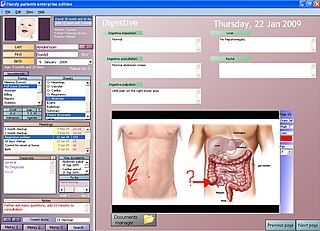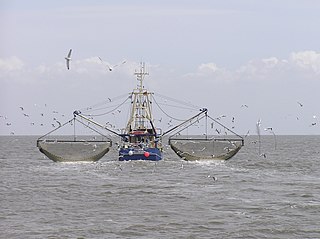
Disk storage is a general category of storage mechanisms where data is recorded by various electronic, magnetic, optical, or mechanical changes to a surface layer of one or more rotating disks. A disk drive is a device implementing such a storage mechanism. Notable types are the hard disk drive (HDD) containing a non-removable disk, the floppy disk drive (FDD) and its removable floppy disk, and various optical disc drives (ODD) and associated optical disc media.

Data storage is the recording (storing) of information (data) in a storage medium. DNA and RNA, handwriting, phonographic recording, magnetic tape, and optical discs are all examples of storage media. Recording is accomplished by virtually any form of energy. Electronic data storage requires electrical power to store and retrieve data.
Analog recording is a technique used for the recording of analog signals which, among many possibilities, allows analog audio and analog video for later playback.

The answering machine, answerphone or message machine, also known as telephone answering machine in the UK and some Commonwealth countries, ansaphone or ansafone, or telephone answering device (TAD), is used for answering telephones and recording callers' messages.
A voting machine is a machine used to register and tabulate votes. The first voting machines were mechanical but it is increasingly more common to use electronic voting machines. Traditionally, a voting machine has been defined by the mechanism the system uses to cast votes and further categorized by the location where the system tabulates the votes.

A data logger is an electronic device that records data over time or in relation to location either with a built in instrument or sensor or via external instruments and sensors. Increasingly, but not entirely, they are based on a digital processor. They generally are small, battery powered, portable, and equipped with a microprocessor, internal memory for data storage, and sensors. Some data loggers interface with a personal computer, and use software to activate the data logger and view and analyze the collected data, while others have a local interface device and can be used as a stand-alone device.

An electronic health record (EHR), or electronic medical record (EMR), is the systematized collection of patient and population electronically-stored health information in a digital format. These records can be shared across different health care settings. Records are shared through network-connected, enterprise-wide information systems or other information networks and exchanges. EHRs may include a range of data, including demographics, medical history, medication and allergies, immunization status, laboratory test results, radiology images, vital signs, personal statistics like age and weight, and billing information.
Voter verifiable paper audit trail (VVPAT) or verifiable paper record (VPR) is a method of providing feedback to voters using a ballotless voting system. A VVPAT is intended as an independent verification system for voting machines designed to allow voters to verify that their vote was cast correctly, to detect possible election fraud or malfunction, and to provide a means to audit the stored electronic results. It contains the name of the candidate and symbol of the party/individual candidate.
A direct-recording electronic (DRE) voting machine records votes by means of a ballot display provided with mechanical or electro-optical components that can be activated by the voter ; that processes data by means of a computer program; and that records voting data and ballot images in memory components. After the election it produces a tabulation of the voting data stored in a removable memory component and as printed copy. The system may also provide a means for transmitting individual ballots or vote totals to a central location for consolidating and reporting results from precincts at the central location. The device started to be massively used in 1996, in Brazil, where 100% of the elections voting system is carried out using machines.

Electronic program guides (EPGs) and interactive program guides (IPGs) are menu-based systems that provide users of television, radio and other media applications with continuously updated menus that display scheduling information for current and upcoming broadcast programming. Some guides also feature backward scrolling to promote their catch up content. They are commonly known as guides or TV guides.
Records management, also known as records and information management, is an organizational function devoted to the management of information in an organization throughout its life cycle, from the time of creation or inscription to its eventual disposition. This includes identifying, classifying, storing, securing, retrieving, tracking and destroying or permanently preserving records. The ISO 15489-1: 2001 standard defines records management as "[the] field of management responsible for the efficient and systematic control of the creation, receipt, maintenance, use and disposition of records, including the processes for capturing and maintaining evidence of and information about business activities and transactions in the form of records".
Enterprise content management (ECM) extends the concept of content management by adding a time line for each content item and possibly enforcing processes for the creation, approval and distribution of them. Systems that implement ECM generally provide a secure repository for managed items, be they analog or digital, that indexes them. They also include one or more methods for importing content to bring new items under management and several presentation methods to make items available for use.

A train event recorder is a device that records data about the operation of train controls and performance in response to those controls and other train control systems. It is similar to the flight data recorder found on aircraft.

Sound recording and reproduction is an electrical, mechanical, electronic, or digital inscription and re-creation of sound waves, such as spoken voice, singing, instrumental music, or sound effects. The two main classes of sound recording technology are analog recording and digital recording.

A music store or musical instrument store is a retail business that sells musical instruments and related equipment and accessories, and may provide maintenance services for these instruments and accessories. In United States and Canada, most music stores in the 2010s sell a range of electric instruments, instrument amplifiers; electronic instruments; drum kits and acoustic classical, concert band and jazz musical instruments. Stores may sell the sound reinforcement system and PA system gear or sound recording equipment.
Monitoring, control and surveillance (MCS), in the context of fisheries, is defined by the Food and Agriculture Organization (FAO) of the United Nations as a broadening of traditional enforcing national rules over fishing, to the support of the broader problem of fisheries management.

Vessel Monitoring Systems (VMS) is a general term to describe systems that are used in commercial fishing to allow environmental and fisheries regulatory organizations to track and monitor the activities of fishing vessels. They are a key part of monitoring control and surveillance (MCS) programs at national and international levels. VMS may be used to monitor vessels in the territorial waters of a country or a subdivision of a country, or in the Exclusive Economic Zones (EEZ) that extend 200 nautical miles (370.4 km) from the coasts of many countries. VMS systems are used to improve the management and sustainability of the marine environment, through ensuring proper fishing practices and the prevention of illegal fishing, and thus protect and enhance the livelihoods of fishermen.
Teldec is a German record label in Hamburg, Germany. Today the label is a property of Warner Music Group.













